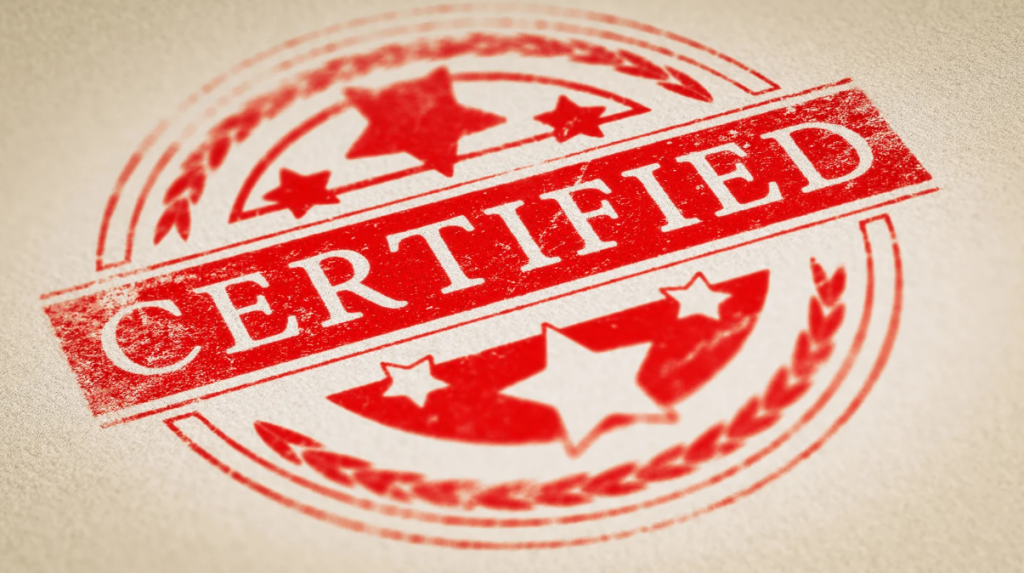Finding the right psychiatrist can feel overwhelming — especially when you’re already struggling with anxiety, depression, mood swings, or burnout. There’s a flood of online profiles, confusing credentials, long waitlists, and insurance hurdles. It’s easy to feel lost in the search.
But here’s the truth: the right psychiatrist for you does exist. And with the right approach, you can find someone who not only meets your needs but supports your healing journey with empathy and expertise.
This comprehensive guide will walk you through everything — from understanding what psychiatrists do, to asking the right questions, to finding one near you (including Psychiatrist in Tallahassee, FL). Let’s make this process less stressful, and more empowering.
What Does a Psychiatrist Actually Do?
First things first — what exactly is a psychiatrist, and how do they differ from therapists?
A psychiatrist is a medical doctor (MD or DO) who specializes in diagnosing, treating, and preventing mental health conditions. Unlike therapists or psychologists, psychiatrists can prescribe medication and offer medical evaluations. They often treat conditions such as:
- Depression
- Anxiety disorders
- Bipolar disorder
- Schizophrenia
- OCD
- PTSD
- ADHD
- Substance use disorders
Therapist vs. Psychiatrist vs. Psychologist
|
Role |
Can Prescribe Medication? | Provides Talk Therapy? |
Focus |
| Psychiatrist | ✅ Yes | Sometimes | Medical + psychiatric |
| Psychologist | ❌ No | ✅ Yes | Psychological testing + therapy |
| Therapist/Counselor | ❌ No | ✅ Yes | Talk therapy only |
So if you’re struggling with symptoms that may require diagnosis or medication, a psychiatrist is the right place to start.
Tools to Help Patients Cope with Disorders

Psychiatrists do more than diagnose — they equip patients with tools to manage and reduce the impact of mental health conditions. These tools often include a combination of medications and psychotherapy, tailored to the individual’s specific diagnosis and lifestyle needs.
Psychiatrists Have a Wide Range of Medications
Medication can be an essential part of treatment, especially when symptoms are severe or interfere with daily life. Psychiatrists carefully assess each patient’s medical history, current symptoms, and potential side effects before prescribing.
- Antidepressants – Used to treat depression, anxiety, OCD, and PTSD
- Anti-anxiety medications – Help reduce panic attacks or intense anxiety episodes
- Mood stabilizers – Commonly used in bipolar disorder and mood dysregulation
- Antipsychotics – Treat schizophrenia, severe depression, and other thought disorders
- Stimulants and non-stimulants – Often used for ADHD and focus-related conditions
Types of Psychotherapy
These medications are often most effective when combined with psychotherapy, which helps individuals build insight, develop healthier thought patterns, and learn practical coping skills.
- Cognitive Behavioral Therapy (CBT) – Helps reframe negative thinking and manage symptoms
- Dialectical Behavior Therapy (DBT) – Focuses on emotion regulation and distress tolerance
- Psychodynamic Therapy – Explores unconscious patterns rooted in past experiences
- Interpersonal Therapy (IPT) – Targets social relationships and communication issues
- Supportive Therapy – Reinforces strengths and offers emotional encouragement
By combining both medical and therapeutic tools, psychiatrists help patients move toward meaningful, long-term improvement.
What Kind of Psychiatrist Do You Need?
Psychiatrists aren’t one-size-fits-all. Many specialize in working with specific populations or issues.
Consider the following types:
- Child & Adolescent Psychiatry: For kids and teens
- Geriatric Psychiatry: For older adults
- Addiction Psychiatry: For those managing substance use
- Perinatal Psychiatry: For mental health during/after pregnancy
- Trauma-Informed Psychiatry: Sensitive to PTSD or past abuse
You may also want to consider:
- Cultural or language match
- Gender preference
- Spiritual/holistic approach
- Experience with neurodivergent individuals
Knowing what kind of support you need can dramatically narrow your search — and make it easier to find someone aligned with your values.
Questions to Ask Yourself Before You Start Searching
Before typing “psychiatrist near me” into Google, take a few minutes to reflect. Ask yourself:
- Am I looking for diagnosis, medication, or ongoing care?
- Do I want a psychiatrist who also provides therapy?
- Would I prefer in-person or virtual appointments?
- Do I need someone who speaks my language or shares my cultural background?
- What’s my insurance coverage or budget?
- Do I have comorbidities like chronic pain, trauma, or hormonal imbalances?
Being clear about your goals helps you find a psychiatrist who truly supports your mental health journey.
How to Find a Great Psychiatrist

Now that you know what you’re looking for, let’s get into the “how.” The process of finding the right psychiatrist may seem intimidating at first, but breaking it down into simple, intentional steps can make it more manageable.
1. Ask for Referrals
- Primary Care Provider (PCP): They often work closely with psychiatrists and may refer you to someone they trust.
- Your current therapist or counselor: Mental health professionals typically have reliable referral networks and know who specializes in what.
- Friends or family: If you’re comfortable sharing, a personal recommendation can give you insight into the psychiatrist’s style and reputation.
2. Explore Professional Listings and Provider Networks
Many professional directories allow you to search for psychiatrists based on location, specialty, insurance accepted, availability, and personal preferences like gender or language. You can also check your health insurance provider’s directory to identify in-network psychiatrists, which helps reduce costs and streamline appointment approvals.
3. Search by Location
Use hyperlocal search terms to narrow down options in your area. This strategy increases the chances of finding someone nearby who meets your specific needs.
Try searches like:
- “psychiatrist who treats anxiety in Tallahassee, FL”
- “Spanish-speaking psychiatrist near me”
- “psychiatrist for trauma recovery in Tallahassee”
Pro Tip: Google Maps reviews often reveal a lot about responsiveness, communication style, and office environment.
What to Look For in a Psychiatrist’s Profile
When browsing psychiatrist profiles, don’t just scan for degrees and licenses — look for personal and clinical alignment. A psychiatrist may be highly qualified on paper, but what truly matters is whether their experience, approach, and values align with your needs.
Here are some important factors to consider while reviewing a potential psychiatrist’s profile:
✅ Board Certification
Make sure the psychiatrist is board-certified in psychiatry. This indicates they’ve completed specialized training and passed rigorous exams. Certification from a recognized board reflects a commitment to continued education and ethical practice.
✅ Specialties Aligned With Your Needs
Does the psychiatrist specialize in the condition or population you’re dealing with? For example:
- Anxiety, depression, PTSD, bipolar disorder, ADHD
- Trauma-informed care
- Addiction recovery
- Child or geriatric psychiatry
Choosing a specialist can make a difference in treatment quality, especially for more complex or long-term conditions.
✅ Treatment Philosophy
Look for clues about their overall approach to care. Some psychiatrists take a medication-only model, while others incorporate therapy, lifestyle interventions, or integrative/holistic methods. Consider whether their mindset matches your comfort level and preferences.
Ask yourself:
- Do they seem collaborative or directive?
- Do they emphasize quick symptom relief or long-term healing?
- Are they open to discussing alternative approaches like nutrition, sleep, or mindfulness?
✅ Accepted Insurance Plans
If you’re using insurance, check whether they accept your specific plan. Going out-of-network can lead to much higher costs, so it’s worth confirming details before scheduling.
✅ Telepsychiatry Availability
Virtual appointments have become widely accepted and convenient. If flexibility is important to you — or if you live in a rural or underserved area — confirm that they offer secure online sessions.
Telepsychiatry can be just as effective as in-person care for most mental health conditions, and it removes barriers like transportation, long commute times, and scheduling conflicts.
✅ Languages Spoken
Effective communication is crucial in mental health care. If English isn’t your first language — or if you feel more emotionally safe speaking in your native tongue — look for psychiatrists who speak that language fluently.
Some also offer services for the Deaf and hard-of-hearing community or culturally sensitive care for specific populations.
✅ Office Hours and Wait Times
Check whether their availability works for your schedule. Some psychiatrists only offer daytime hours, while others have early morning or evening appointments.
Also, pay attention to:
- Average wait time for new patients
- How often you can expect follow-ups
- How they handle emergencies or urgent medication questions
Timely access can be critical during mental health crises, so choose someone who can meet your accessibility needs.
✅ Save this checklist to guide your search!
Questions to Ask During the First Appointment
Your first visit with a psychiatrist is a chance to get to know each other. You don’t have to commit after one session. Think of it as an interview — for both of you.
Consider Asking:
- What’s your approach to medication and therapy?
- Do you tend to take a short-term or long-term approach?
- How do you decide on a diagnosis?
- What happens if I don’t want medication right away?
- How will we measure progress?
Bring a written list of:
- Symptoms
- Medications
- Questions or fears
- Goals for treatment
You deserve to feel safe, understood, and supported from day one.
Signs They’re a Good Fit — Or Not

Finding the right psychiatrist isn’t just about credentials — it’s also about how they make you feel during and after each session.
✅ Green Flags
These are signs you’re building a supportive, collaborative relationship that prioritizes your well-being:
- They actively listen
- They don’t rush appointments
- They include you in treatment planning
- They explain options clearly
- You leave feeling hopeful or at least understood
? Red Flags
These warning signs may indicate the provider isn’t a good match for your mental health needs:
- They dismiss your concerns
- They don’t explain your diagnosis or medication plan
- They seem disinterested or robotic
- You feel judged, unsafe, or pressured
“Trust your instincts. You’re not being “too picky” — you’re advocating for the care you deserve. A good psychiatrist will welcome your questions and value your voice in the healing process.”
Don’t Give Up — The Right Fit Is Worth It
Mental health recovery is a marathon, not a sprint. The relationship you have with your psychiatrist matters deeply. Studies show that trust, communication, and shared decision-making improve mental health outcomes.
And if one psychiatrist isn’t the right fit? That’s okay. Many people go through two or three before finding their person.
Keep going. You’re worth it.
Psychiatrist Near Me in Tallahassee, FL
Finding the right psychiatrist in Tallahassee can feel overwhelming, especially when you’re already dealing with stress, anxiety, or other mental health symptoms. With so many options, it’s essential to choose someone who aligns with your treatment goals and communication style. Whether you need support for depression, trauma, ADHD, or simply want to feel more balanced, local help is within reach. Prioritizing a provider who understands your unique needs can make all the difference in your recovery journey. Quality psychiatric care shouldn’t feel like a maze — and it doesn’t have to.
If you’re searching for trusted psychiatric care, consider Stay Healthy, LLC — a provider of both primary care and mental health services right here in Tallahassee, Florida. We specialize in treating anxiety, depression, ADHD, and more, offering both medication management and counseling in one convenient location. Our compassionate team takes time to build real relationships with patients and create treatment plans that truly fit.
Whether you’re new to mental health care or seeking a fresh perspective, we’re here to support you. Call us at (850) 329-2932 to speak with our team — we’re happy to answer questions and help you take the next step toward feeling better.












